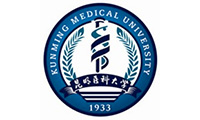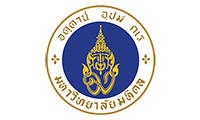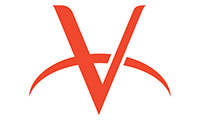FBLI Monitoring and Evaluation Framework
Background
Field Building Leadership Initiative (FBLI) is multi-country, multi-sectoral and transdisciplinary program composing researchers, practitioners and policy makers from China, Indonesia, Thailand and Vietnam. The purpose of the program is to build the field of Ecohealth by integrating research, training, policy and networking to focus on solving human health problems associated with agricultural intensification in SEA countries. Using a diverse range of methods and activities – including the “site-based research”’ concept – supported by national and regional networking events, the FBLI will implement three interlinked components: i) research; ii) capacity building; and iii) knowledge translation.
The program has four specific and interlinked objectives: (i) Conduct transdisciplinary, multi-country, multi-institutional, gender-sensitive and participatory EEcohealth research to address human health problems related to agricultural intensification; (ii) Strengthen the capacity within SEA for Ecohealth research and practice by developing institutional capabilities to deliver Ecohealth training, provide a range of training materials and course offerings, and mentor early-career professionals to build leadership and expertise in the Ecohealth field; (iii) Engage key policy makers – at local and national levels – to interact with the Ecohealth research teams, sites and communities to ensure that the emerging research findings will inform and positively influence policy and practice in the field and (iv) Facilitate networking-of-networks and knowledge sharing at national and regional levels – linking with key events in the region – to mainstream Ecohealth approaches and foster the development of the Ecohealth field in the region.
As a result of the five-year FBLI, the following outcomes would be achieved:
- Ecohealth is well-positioned to become a sustainable dynamic field in the region beyond the life of the initiative, led by a new generation of Ecohealth researchers and practitioners. A vibrant and visible Ecohealth research community has emerged in Southeast Asia, strengthening the voice and elevating the role of researchers and actors from the region in key global arenas and discourses (e.g., in the IAEH, One Health Initiative).
- Path-breaking research findings and practical solutions have emerged from site-based Ecohealth research conducted in at least four Southeast Asian countries, underpinned by participatory action research approaches to locally defined problems and issues.
- A robust and critical mass of training materials and pedagogy, regional cases, best practices, and regional short courses and degree programs – developed in collaboration with partners, master trainers and mentors – are available for future use and adaptation by a range of stakeholders at local, national and regional levels.
- Strong and enduring linkages among policy makers and researchers have been established, enabling the effective uptake and use of research findings and evidence in policy formulation and implementation.
In order to manage the program, the following organizational and governance structure were established:
Regional Core Group (RCG): FBLI implementation is led by a Regional Core Group (RCG) consisting of the 8 members who represent key organizations, different sectors and other regional networks involved in Ecohealth.
Coordinating Unit (CU): The CU is hosted by the Vietnam Public Health Association (VPHA) and the Center of Public Health and Ecosystem Research (CENPHER) of HSPH to serve as the central administrative hub for FBLI. This unit works closely with the Program Coordinator and Program Officer, and other members of the RCG. Key functions will include: liaising with the RCG and other partners, providing logistical support and arrangements for FBLI meetings and workshops, managing funds and contracts, and supporting the Program Coordinator and Program Officer to monitor the progress and financial situation of the initiative. The CU serves as the main conduit for communications and two-way information exchange with RCG members and other partners, and is responsible for preparing and submitting reports and deliverables to the RCG and IDRC.
Purpose of the FBLI M&E framework
The purpose of this document is to describe the FBLI Monitoring and Evaluation Framework, which is developed to ensure the update of progress for the program’s component and reliable information on impact of the program.
Monitoring and Evaluation tools
In order to track the progress and impact of this program, the following tools will be used:
Detailed program implementation plan: This implementation plan will be updated by the CU on a six-month basis. The tool will document any deadline that failed or changed in comparison with the initial plan/schedule To update the plan, the CU shall grasp information from the RCG meeting minutes, six-month and annual technical progress reports sent by the component coordinators and country team leaders. The FBLI-CU is responsible for preparing the FBLI six-month report and yearly technical report and send to RCG members for reviewing before submitting to IDRC.
Self-reflections: Regular self-reflection activities will be carried out on a six-month or yearly basis by the FBLI-CU with collaboration with the RCG members and country teams. The first self-reflection exercise will be facilitated by an international consultant among all FBLI members from each country for all FBLI projects (research, capacity building and knowledge translation. The CU will lead the next self-refection activities.
Participatory monitoring and evaluation for action research: Appropriate PM&E approaches and tools will be developed by the country teams and integrated into their implementation plans. This will be part of the action learning cycle to enable communities and local stakeholders to contribute valuable feedback and inputs for the ongoing participatory action research at study sites.
Implementation
- Detailed program implementation plan: Based on the information which the CU obtains through the communication process with all stakeholders (meeting minutes, technical reports, email communications, Skype chatting…),the CU updates and tracks the progress for each activity implemented by country teams to assess whether or not activities are being implemented according to plan to document progress and identify gaps and areas needing more efforts. The CU with collaboration of RCG members will establish the communication mechanism which provides commitment to exchange information and experience between 7 institutions and the CU.
- FBLI activity bulletin
A quarterly bulletin of FBLI that updates component activities will be internally shared electronically to all the RCG and country team members of FBLI and IDRC. The bulletin is put in the FBLI website.
- Self-reflections
Self-reflection is informal and participatory evaluation. It is a joint effort to generate and reveal dynamics and outcomes created by the members of the network. The purpose of the self-reflection exercises are to facilitate a self-reflection process among all FBLI members (RCG members, researchers and all country team members, local partners and CU members) to build up the track records of FBLI in participatory and self-reflective way.
The self-reflection exercise could be guided (but not limited to) through the following key questions:
- What are the main strengths, weaknesses, opportunities and threats encountered in the FBLI activities in your teams/country so far? What would you wish you could change/improve?
- Which are the "striking facts" of your project and how could they probably link to those of other projects?
- Which are the results and outputs (e.g., publications, presentations, policy advice) of your project(s)?
Synthesis of the self-reflection exercise will be shared and discussed with all members of the program. The findings of these self-reflections will serve as a basis for the program improvement and adjustment.
The self-reflection will be done when the need is identified, for example when FBLI does not work smoothly or new strategy, opportunities are present to advance Ecohealth in the region or country.
Outcome Harvesting:
The CU, with support from an international consultant and with collaboration with the RCG members, will develop an M&E tool namely Outcome Harvesting including key indicators to measure progress toward program outcomes. This is a learning process with busy working participants, therefore the process should be not complicated. Once the OH tool is developed, the tool will be shared with the country teams and implemented by the country teams with technical support from the CU.
The process is described as follows:
- Boundary partners in each country are identified;
- The CU develops a form under support by an international consultant and sends or meets the boundary partners to fill in the forms (what changes they have undergone to which the FBLI has contributed and how that changes came about);
- Tool is shared with country team
- The OH is implemented at country level by each country team with the CU technical support, and at regional level by the CU and the RCG members
- The CU will synthesize and disseminate the results.
Roles and responsibilities
As agreed, the FBLI-CU is responsible for coordinating monitoring and evaluation activities by using above-mentioned four FBLI M&E tools with collaboration of the RCG members, specifically:
- For update progress, the CU works with RCG members and the country team leaders and the component leaders.
- The first self-reflection exercises will be facilitated by an international consultant and the next ones will be led by CU.
- The Outcome Harvesting will be managed by the CU and implemented with country research team leaders.
The FBLI-CU will be responsible for planning, synthesizing and disseminating results of all three types of the M&E.












